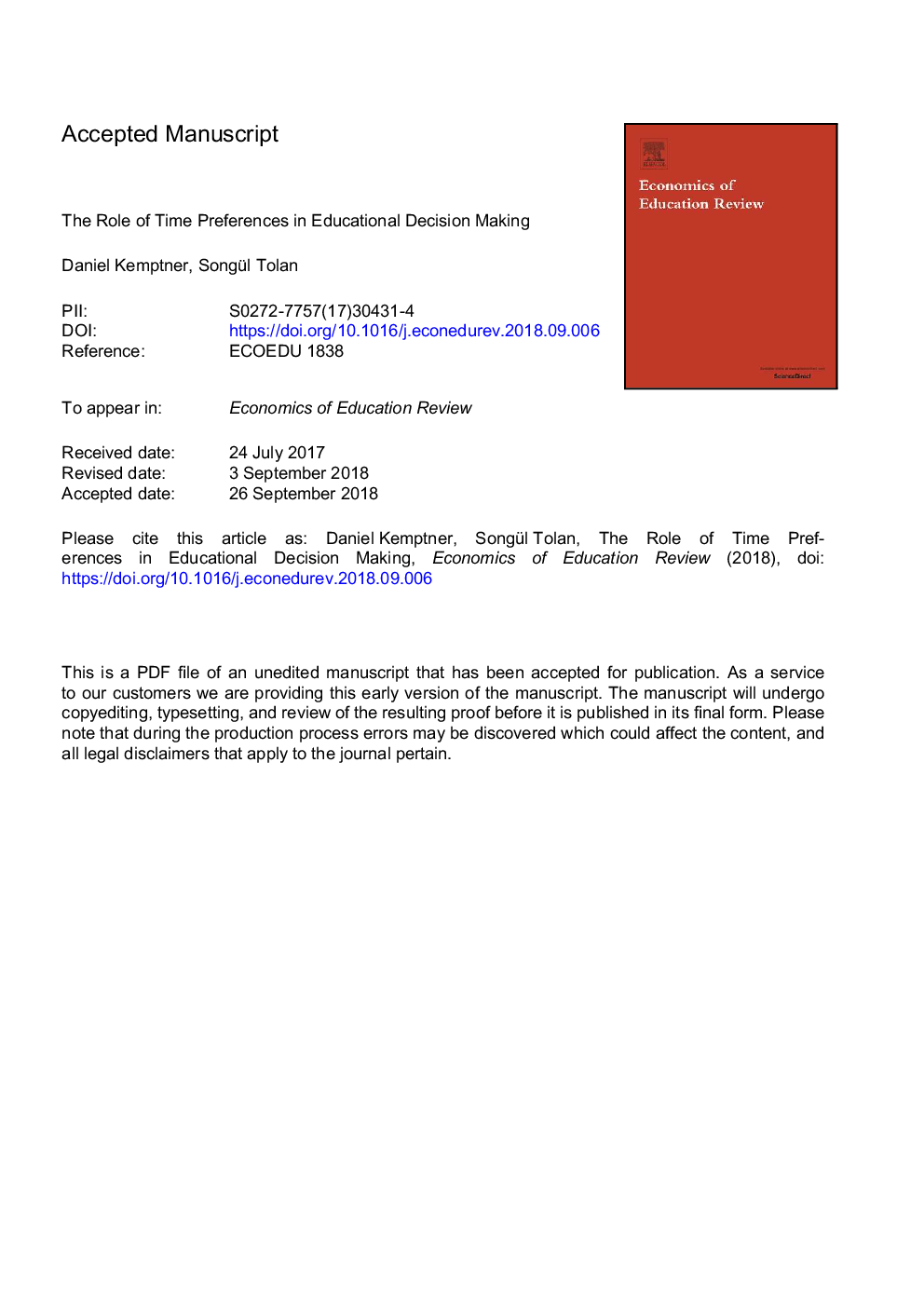| Article ID | Journal | Published Year | Pages | File Type |
|---|---|---|---|---|
| 11021212 | Economics of Education Review | 2018 | 39 Pages |
Abstract
We analyze the implication of time-inconsistent preferences in educational decision making and corresponding policies using a structural dynamic choice model. We make two important research contributions. First, we estimate our model using data from the German Socioeconomic Panel (soep) and provide quantitative evidence for time-inconsistent behavior in educational decision making. Second, we evaluate the relevance of time-inconsistent behavior for the effectiveness of education policies. For this purpose, we simulate policies where time preferences may play an important role: (1) an increase in the state grant for students as a way to affect short-term costs while at school and (2) an increase in the state grant as a loan that must be paid back after education is completed. We find substantial differences in the educational outcomes when comparing them to the outcomes based on a model specification with exponential discounting. Hence, the common assumption of exponential discounting in educational decisions may be too restrictive.
Keywords
Related Topics
Social Sciences and Humanities
Economics, Econometrics and Finance
Economics and Econometrics
Authors
Daniel Kemptner, Songül Tolan,
